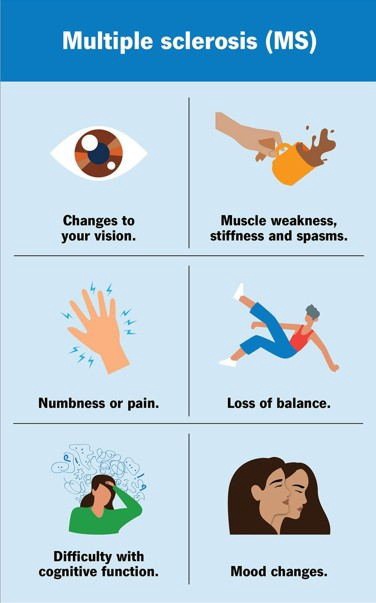Overview
- The study published August 1 in JAMA Network Open analyzed more than 12,000 British Columbia patients’ records spanning 25 years before neurologist-defined MS onset
- Primary care and mental health consultations rose about 15 years before symptom onset, followed by psychiatrist visits 12 years prior and neurologist and ophthalmologist visits eight to nine years before
- Emergency department and radiology appointments increased three to five years before first demyelinating events, with multispecialty visits peaking one year before symptom onset
- Prodromal signs such as fatigue, headache, pain and mood concerns are highly nonspecific and most individuals with these early red flags will not go on to develop MS
- Researchers call for targeted biomarker research and preventive strategies to leverage extended warning signs for earlier monitoring and support



